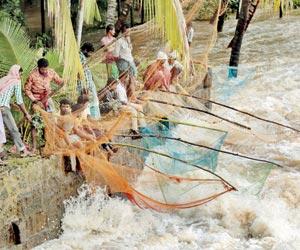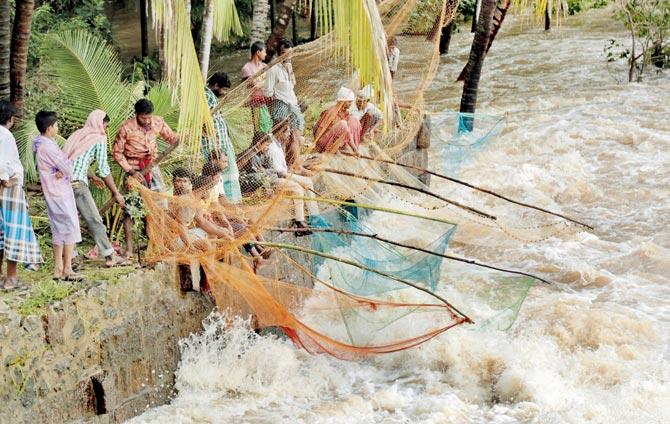Cyclonic turbulence is expected to increase in the Arabian Sea over the coming years, a scientist warned on Friday


Representational picture
ADVERTISEMENT
Gandhinagar: Cyclonic turbulence is expected to increase in the Arabian Sea over the coming years, a scientist warned on Friday.
Looking at the data since 2014, experts see a rise in the number of such instances, a phenomenon which might be attributed to global warming, said former Union Earth Sciences Secretary Shailesh Nayak.
"Cyclones in the Arabian Sea are likely to increase in the near future," he said at the two-day national workshop on 'Coastal Zone Management - Policies to Action' inaugurated here on Friday.
"Looking at the pattern of the cyclones that have begun appearing in the Arabian Sea since a couple of years, we can see that it is bound to increase in coming years.
"In 2014, we had one cyclone and in 2015 we had two. This year also we had 'Ockhi' that was expected to hit the western coast. Earlier, we have never had such cyclonic action in the regions and not with the magnitude and frequency we are seeing now. Now it has almost become an annual phenomena," Nayak told the media.
The western coast of India saw, for the first time, an extremely severe cyclonic storm -- Nilofar -- in October 2014, where winds greater than 100 miles per hour blew over the Arabian Sea, and forced the local authorities to evacuate around 30,000 people.
In 2015, the Arabian Sea saw two more cyclones, even stronger than Nilofar, in just one week. Cyclone Chapal blew at a wind speed of 150 miles per hour and Cyclone Megh killed 27 people.
Last month, Cyclone Ockhi nearly touched the coast of Gujarat and a heavy destruction was feared then. After Megh, Ockhi was the most intense storm measured by experts, with winds blowing over 115 miles an hour.
"This increasing activity can be attributed to global warming and can be taken as a warning sign for the mankind," said Nayak.
The event, jointly organised by the Gujarat Ecology Commission (GEC) and the Society of Integrated Coastal Management (SICOM), sees stakeholders like the government, NGOs, scientific institutes, international and national agencies, the World Bank, Ministry of Environment, Forest and Climate Change, and the Zoological Survey of India, share their experiences on the last seven years of the Integrated Coastal Zone Management Programme.
Catch up on all the latest Mumbai, National and International news here
Download the new mid-day Android and iOS apps to get updates on all the latest and trending stories on the go
The content/reporting displayed on our website www.mid-day.com is provided "AS-IS," "AS AVAILABLE, by us from third party, agencies, sources, without any verification from our side. It may contain error, bugs and other limitations. The reader's can rely on the content at their own will. Mid-day accepts no responsibility or liability for its dependability, trustworthiness, reliability, data, text, images, video, messages, or any other material whatsoever or for any claims/loss/action that the reader may suffer as a result of relying on the content on our site. Mid-day management/mid-day.com reserves the sole right to alter, delete or remove (without notice) the content in its absolute discretion for any reason whatsoever.
 Subscribe today by clicking the link and stay updated with the latest news!" Click here!
Subscribe today by clicking the link and stay updated with the latest news!" Click here!







